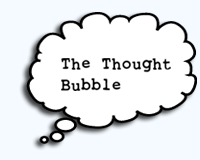- Comics
- Comics Reviews
- Manga
- Comics Reviews
- European Comics
- News
- Comics News
- Press Releases
- Columns
- Spotlight
- Digital Comics
- Webcomics
- Cult Favorite
- Back Issues
- Webcomics
- Movies
- Toys
- Store
- More
- About
By Philip Schweier
January 16, 2005 - 10:48

Characters Of Culture

I am not by nature a PC person. I try to be considerate, but I don't go out of my way in referring to people as Italian-Americans, Japanese-American, etc. I believe it to be a matter of misplaced intentions. Ironically, it's often people who apply such divisive labels who then plead, "Why can't we come together as a united people?"
With that in mind, I feel the comics industry, as well as television and film, is doing their audience a disservice in making much ado about a character's race, or ethnic background.
Don’t get me wrong, cultural diversity is a beautiful fact of life. Since the days of the original Star Trek, writers have strived to be all-inclusive when creating a large cast of characters, sometimes going to what I feel to be unreasonable extremes. It wasn't enough to feature a Vulcan on Star Trek: Voyager, they had to make him "African-Vulcan." I consider this to be a situation of "shoehorning" cultural diversity down our throat.
DC Comics made a half-hearted effort in 1970. In Lois Lane #106, Lois lives her life as a black woman for a short time, much like the "Black Like Me" story told by author John Griffin in the early 1960s. It may have been an interesting idea as originally presented in the novel and subsequent movie, but in the medium of comics it didn't translate very well. It’s a matter of good intentions leading to poor execution.
Personally, I approve of broadening the cultural spectrum, but favor moderation. I disapprove of bad writing in an effort to be politically correct. While I try to be open-minded toward everyone's background, I don't feel EVERYONE needs to be featured EVERY time. Balance is key, favoring one group one time, and later another. Striving for absolute equality can be unreasonably demanding.
Eventually, DC hit the right note in the pages of Green Lantern. The title is often credited with being very progressive, featuring an Eskimo airplane mechanic, Thomas Kalmaku. It made sense that in a title depicting a corps that included thousands of races from across the galaxy, it also strive to include some of the cultures of our own world.
Its writer, Denny O'Neil, wasn't afraid to question the good intentions of our heroes who often lived in a very "white bread" world. In Green Lantern/Green Arrow #76 (c. 1970), a black man questions Green Lantern's multi-cultural policy. Approximately a year later, in #87, John Stewart, a black man who was a reserve Green Lantern, was introduced as an alternate Green Lantern for Earth’s space sector.
However, many of these DC characters at the time were largely supporting roles. Marvel chose to be more proactive, with heroes such as Luke Cage starring in his own title, and The Falcon being given equal billing with Captain America. It wasn't until the advent of Black Lightning in 1975 that a black super-hero starred in his own DC title.
Religious diversity has also allowed for a blending of faiths in the comic world, such as in the X-Men. Kitty Pryde was introduced as Jewish, while her teammate Nightcrawler is a Catholic. Writers have continued to refine the casts of comics, introducing sub-cultures such as Cajun, Navajo and French Canadian.
My grandfather came to the States from Germany over a hundred years ago. My father served in World War II, and toward the end of his life he objected to being referred to as German-American. He fought for this country, and believed (rightly so) that he had earned the right be simply an American. I am many things, and while I am proud of my heritage, it is only one small facet. I do not wear it like badge or shove it in the face of other people. If I were Asian I would not feel the need to constantly remind others of it, because I would not want to be seen as an Asian person, simply a person. I do not advocate the notion that people of other lands should forsake their heritage, and embrace rock 'n roll, blue jeans, and the Dallas Cowboys. As this melting pot world of our grows, it is inevitable that these separate cultures become part of our own natural pedigree.
As humanity evolves, we will hopefully become more blinded to particular traits of any given group of society. Often children aren't aware of differences until they are pointed out by an adult. Ultimately, those cultural differences just shouldn't matter. •
Praise and adulation? Scorn and ridicule? Email me.